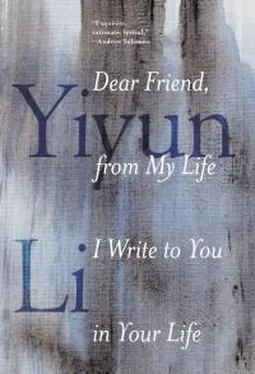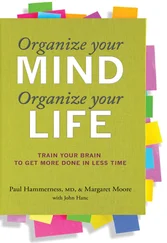Compared with the internal, the external becomes insignificant and of no consequence. The point in reflective sorrow is that the sorrow is constantly in search of its object; the searching is the unrest of sorrow and its life.
—Kierkegaard,
Either/Or
The one time during this difficult period I truly laughed without any restraint, it was one of those days when I sat on a ward couch and saw little hope in life. Another patient grabbed War and Peace from my hands, and, with R-rated language, scolded me for messing up my brain with nonsense. Her grievance against Tolstoy was so personal that I could not stop laughing.
Have I made you laugh? she said. She then raised the thick volume. Has this fucking book ever made you laugh? No! It’s so damn heavy it could kill me.
Well, what do you want me to do, I said; I can’t change myself.
Laugh more, she said.
Laughter needs a target, I wanted to say; it is not an argument but a judgment; I would rather argue than judge. These thoughts, circling in my head, made me laugh at myself.
When people insist that I look too happy for my work, or my work is too bleak for my appearance, I resort to glibness. Oh, I say, there is that wonderfully woeful Kierkegaard. For a year, when I could not save myself from despair, I read him obsessively. He has made me laugh more than any other writer.
A long story has after all a measureable length; on the other hand, a short story sometimes has the puzzling property of being longer than the most long-drawn-out one.
—Kierkegaard,
Either/Or
One summer, my twelve-year-old read Les Misérables three times, cover to cover. I tried in vain to convince him that it is not the only great novel, and Victor Hugo not the only great writer (not even the only great French writer, I said to him).
A young person, beginning to read seriously, tends to live—infatuated, even—with one book at a time. The world offered by the book is large enough to contain all other worlds, or exclusive enough to make all other worlds retreat. Sometimes the book is replaced by another, the old world giving way to a new one; the enchantment—or the entrapment—may also be an experience that happens once in life.
Solitude is noble, but fatal to an artist who has not the strength to break out of it. An artist must live the life of his own time, even if it be clamorous and impure: he must forever be giving and receiving, and giving, and giving, and again receiving.
—Romain Rolland,
Jean-Christophe
A few years ago, I discovered in a secondhand bookstore a copy of the English translation of Jean-Christophe. The novel was originally published in 1910. In the 1938 Modern Library edition, which was what I found, the author’s name is followed only by the birth year: Romain Rolland (1866–). The owner of the book had his name, an Edward G———, and the date “October 30, 1943” written inside the cover. Rolland was still alive when the book was purchased: its owner was a contemporary. Other than that mark, he did not underline the text or comment in the margin.
Between ages sixteen and eighteen, I read the Chinese translation of Jean-Christophe many times. When I first arrived in America, with a French grammar book and a dictionary and without any previous knowledge of the language, I set out to read the original French text along with its English translation, both from the university library, where they had sat for decades without having been checked out. I thought it would be a good way to improve my English and to learn French with a novel that I had half memorized. I did not reach Volume Two before both editions were due.
Rolland, novelist, playwright, music critic, biographer, and Nobel laureate, has long been forgotten in this country, partly, I suppose, for the reason that he was a Communist (on top of being a Frenchman!).
When one is younger, one tends to read without a context—or what is considered as context is only a pretext. A love story is preparation for love, a sad tale paves the road to sadness, an epic an experience of honor and glory. It is the same with living. One learns to understand and make peace with one’s context, rather than going from one pretext to the next. The latter is an experience with which I have been familiar. For years I have had the belief that all my questions will be answered by the books I am reading. Books, however, only lead to other books.
It is surprising now to think that Jean-Christophe, a novel about being political, about participating in life, was at one time the novel that offered me the entire world. Would I even believe in Rolland’s words today? I have finally come to the point where I know the answers I look for are not in any book.
I said how my own character seemed to cut out a shape like a shadow in front of me. This she understood (I give it as an example of her understanding) & proved it by telling me that she thought this bad: one ought to merge into things.
—Virginia Woolf in her diary, on her last meeting with Katherine Mansfield
Virginia Woolf and Katherine Mansfield had an intense and uneasy friendship, as is often found between two rivals who also understand each other.
A shadowy shape cut out and placed in front of one’s own eyes is not a character, but a phantom. To merge into things —there is a Chekhovian echo in Mansfield’s phrase. After Mansfield’s death, Woolf criticized that Mansfield could not “put thoughts, or feelings, or subtleties of any kind into her characters, without at once becoming, where she is serious, hard, and where she is sympathetic, sentimental.”
She [Katherine Mansfield] said a good deal about feeling things deeply: also about being pure, which I wont criticise, though of course I very well could. But now what do I feel about
my
writing?—this book, that is,
The Hours,
if thats its name? One must write from deep feeling, said Dostoevsky. And do I? Or do I fabricate with words, loving them as I do? No I think not. In this book I have almost too many ideas. I want to give life & death, sanity & insanity; I want to criticise the social system, & to show it at work, at its most intense— But here I may be posing….Am I writing
The Hours
from deep emotion? Of course the mad part tries me so much, makes my mind squint so badly that I can hardly face spending the next weeks at it….I daresay its true, however, that I haven’t that ‘reality’ gift. I insubstantise, wilfully to some extent, distrusting reality—its cheapness. But to get further. Have I the power of conveying the true reality? Or do I write essays about myself? Answer these questions as I may, in the uncomplimentary sense, & still there remains this excitement.
—Virginia Woolf’s diary entry after Mansfield’s death (this is often quoted as it talked about
The Hours,
which was later renamed
Mrs. Dalloway
)
One can go on quoting Woolf’s comments from her letters and diaries on Mansfield. There were plenty, some astute or sympathetic, others unfair, even petty. But of all Mansfield’s notebooks, Woolf only appears twice. In July 1920, there is a simple note, “Virginia, Wed. afternoon.” According to Woolf’s diary, the date refers to a lunch at which the two disagreed on Joseph Conrad’s latest book, The Rescue. “I still maintain that I’m the true seer, the one independent voice in a chorus of obedient sheep, since they praise unanimously,” Woolf wrote. (One cannot help but wonder whether she would relish her own future of being in Conrad’s position.)
The second time Woolf appears in Mansfield’s journal she is not named but only referred to as one of “that publishing couple in cane chairs.” Of course it can’t be said for certain that the couple are the Woolfs. The description—a character portrait done in dispassionate observation, which was Mansfield’s forte—reminds us of them. A sentence, presumably a compliment to Woolf, stands out: “She was one of those women—one of those women who still exist in spite of everything.”
Читать дальше












